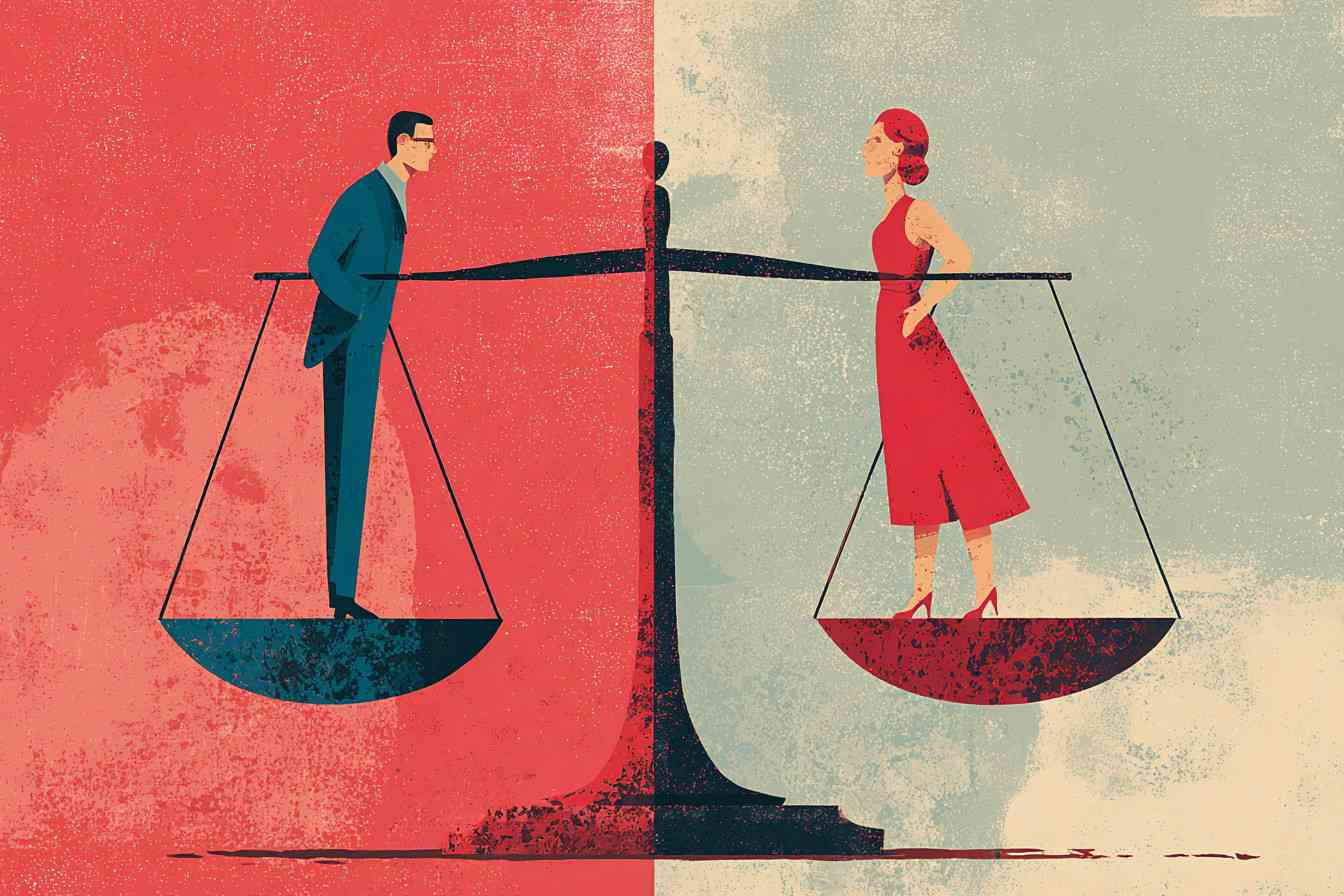The paradox of progressivism: how global equality movements undermine women’s rights

Progressive politics has long claimed to be the vanguard of women’s liberation. It speaks of equality, inclusivity, and freedom of identity as the hallmarks of a modern society. Yet beneath this rhetoric lies a growing contradiction: the same policies and cultural shifts that claim to empower women often erode their safety, erase their identity, and weaken their social and legal protections.
Across the Western world, progressive governments and institutions have redefined womanhood not as a biological category but as a self-declared identity. They have promoted unrestricted migration from patriarchal societies while dismissing cultural incompatibilities, and they have replaced the language of womanhood with gender-neutral abstractions. The result is a world where the word “woman” is politically fragile, where female spaces are dissolving, and where women who speak up are vilified as reactionary.
Gender ideology and the loss of biological reality
The redefinition of “woman” has become a central project of contemporary progressivism. Laws in Canada, the United Kingdom, and parts of the European Union now define gender identity as a matter of self-declaration rather than biology (Gender Recognition Act 2004, UK Parliament). Under these frameworks, anyone who identifies as a woman must be legally recognized as such, regardless of anatomy or medical transition.
This shift was intended to promote inclusivity, but it has introduced new forms of inequality. Women’s spaces, sports, shelters, bathrooms, and prisons, were once protected to ensure privacy and safety. They are now open to anyone claiming a female identity. When women protest these changes, they are accused of bigotry rather than being heard as legitimate defenders of their rights.
In 2021, the UK’s Ministry of Justice confirmed that transgender-identifying males were being held in women’s prisons if their legal gender was recorded as female. The result was a series of assaults against female inmates (Transgender Prison Policy Review, Ministry of Justice UK). Similar incidents were reported in Canada, where biological males transferred to women’s facilities assaulted female prisoners (Federal Correctional Investigator Annual Report 2021, 2022, Canada).
These examples reveal a dangerous moral inversion. Policies designed to protect one minority group now compromise the safety of another. The idea that identity supersedes biology has turned women’s rights into a negotiation rather than a guarantee.
The same problem extends into sports. Progressive organizations, following policies from the International Olympic Committee and the NCAA, allow biological males who identify as women to compete in female categories. The physiological advantages of male puberty are well documented (Transwomen in Elite Sport: Scientific and Ethical Considerations, Hilton & Lundberg). Female athletes who object are often silenced or ostracized, as seen in the cases of swimmers Riley Gaines and Lia Thomas. The feminist principle of equal opportunity has been replaced by a politics of performative inclusion that rewards ideology over fairness.
The disappearance of women in language
The erosion of women’s identity is not limited to policy. It has permeated the language of public life. Progressive institutions increasingly avoid the word “woman” altogether, replacing it with neutral phrases such as “people who menstruate” or “pregnant individuals”. The United Nations and several national health agencies have adopted such terminology under the banner of inclusivity (Guidelines on Gender-Inclusive Language, United Nations).
This linguistic shift has profound political consequences. When the word “woman” disappears from health policy, education, and law, the specific issues that affect women become invisible. Maternal health, sexual violence, reproductive care, each becomes diluted into gender-neutral categories. The power to name one’s experience, once central to feminist liberation, is being erased by the very ideology that claims to empower.
Prominent feminist thinkers have sounded the alarm. J.K. Rowling argued that “if sex isn’t real, there’s no same-sex attraction, and the lived reality of women globally is erased” (Sex and Gender in the Modern Age, Rowling). Philosopher Kathleen Stock has made a similar point, emphasizing that acknowledging biological sex is essential for safeguarding women’s spaces and rights (Material Girls: Why Reality Matters for Feminism, Stock).
The linguistic erasure of womanhood parallels a broader postmodern tendency within progressivism: the replacement of truth with feelings. The word “woman” no longer refers to a concrete reality but to an abstract self-perception. The result is a culture where truth becomes subordinate to ideology and where the defense of biological facts is branded as moral offense.
Migration and the decline of women’s safety
Alongside gender ideology, another cornerstone of modern progressivism, mass immigration, has produced unintended consequences for women. Across Europe and parts of North America, liberal immigration policies have brought large numbers of men from societies with deeply patriarchal traditions. While integration is the official goal, many communities maintain cultural norms that directly conflict with Western principles of gender equality.
In Germany, Sweden, and France, reports have documented rising levels of sexual harassment and assault in areas with high concentrations of recent migrants (The Refugee Crisis and Gender-Based Violence in Europe, European Union Agency for Fundamental Rights). The Cologne New Year’s Eve assaults of 2015, involving over a thousand women, became a turning point that revealed how unprepared progressive societies were to confront the gendered consequences of their own policies.
Sweden, often celebrated as the world’s most feminist nation, now records some of the highest rates of sexual violence in Europe. The Swedish National Council for Crime Prevention found that between 2011 and 2021, sexual assault reports rose by over 60 percent, with a disproportionate number of offenders being non-native males (Brottsförebyggande rådet Crime Statistics Report 2022, Sweden). Rather than address this reality, progressive politicians and media outlets have chosen silence, fearing accusations of xenophobia.
The same avoidance occurs in the United Kingdom, where so-called “grooming gangs” exploited thousands of girls across towns such as Rotherham and Telford. Investigations revealed that authorities ignored evidence for years due to fears of being seen as racist (Independent Inquiry into Child Sexual Exploitation in Rotherham 1997, 2013, Jay). Here, progressivism’s moral paralysis becomes evident: the desire to appear virtuous outweighed the duty to protect women and girls.
This pattern reflects a broader ideological rigidity. Progressive elites elevate tolerance as an absolute value, even when that tolerance enables misogyny. The defense of multiculturalism has, paradoxically, forced women to live in greater fear within societies that claim to be enlightened.
The feminism of symbols and slogans
What remains of mainstream feminism under progressive rule is largely symbolic. Corporations and governments celebrate “International Women’s Day” with rainbow-colored logos and inclusive slogans, while the real struggles of women, violence, unequal safety, social vulnerability, receive little attention.
The emphasis has shifted from material conditions to identity representation. Boardroom quotas and gender pronouns have replaced discussions about single mothers, female poverty, or the exploitation of women in migrant labor. This is not liberation but depoliticization: the transformation of feminism into a marketing tool.
In academia and media, dissenting voices are marginalized. Female scholars who question gender ideology face professional backlash, as seen with Kathleen Stock’s forced resignation from the University of Sussex in 2021 (Academic Freedom and Gender Identity Debate, Times Higher Education). Journalists and authors who defend sex-based rights are routinely deplatformed under accusations of “transphobia”. The result is a chilling effect on public discourse, where women’s rights can no longer be defended without fear of social or institutional punishment.
Progressivism, once associated with freedom of thought, now polices opinion with the rigidity of religion. Feminism has been hollowed out, replaced by an orthodoxy that prizes conformity over courage.
The global pattern of erasure
The pattern repeats itself across institutions. The United Nations, the World Health Organization, and major NGOs have embraced policies that deconstruct sex-based categories in favor of gender fluidity. The WHO’s 2022 guidance on gender and health explicitly stated that gender “exists on a continuum” and that binary definitions of male and female are “problematic” (Gender Mainstreaming Manual, World Health Organization).
Such statements may sound progressive, but they carry profound policy implications. If male and female are social constructs, then sex-specific protections lose their foundation. The right of women to single-sex hospital wards, prisons, or shelters becomes indefensible within a framework that denies the category of “woman” altogether.
Even the human rights discourse has been reshaped. International agencies increasingly treat “gender identity” as equal or superior to sex in legal frameworks. The Yogyakarta Principles, adopted by many Western governments as interpretive guidance on gender identity, assert that individuals have the right to recognition “regardless of sex or medical status” (Yogyakarta Principles on the Application of International Human Rights Law, 2006). While intended to prevent discrimination, this approach dissolves the material basis of women’s rights in law.
Across education, the arts, and public administration, the same ideological shift continues. Schools teach children that biological sex is a colonial invention, museums rewrite women’s history through the lens of intersectionality, and government agencies measure gender equity by identity diversity rather than by tangible safety or welfare outcomes. What began as a call for inclusion has become a system of moral coercion.
The conservative backlash
Predictably, this trend has provoked a growing backlash. Across Europe and North America, a new generation of women’s groups, academics, and politicians are challenging the moral monopoly of progressivism. They argue that acknowledging biological reality is not bigotry but the foundation of women’s rights.
Organizations such as Women’s Declaration International and Fair Play for Women campaign for the reinstatement of sex-based protections. Their members include lifelong feminists, many of whom once supported progressive causes but now view them as captured by ideology. They point to the collapse of women’s refuges, the silencing of female athletes, and the linguistic erasure of womanhood as evidence of regression disguised as progress (Declaration on Women’s Sex-Based Rights, Women’s Declaration International).
This resistance is often dismissed by mainstream media as conservative or right-wing, yet its roots are deeply feminist. It calls for the restoration of boundaries, not the denial of rights. The protection of women’s spaces, language, and bodies is not reactionary but rational, a defense of material reality against political abstraction.
The price of moral vanity
At the heart of progressivism lies a moral vanity: the belief that good intentions are sufficient to define good outcomes. By prioritizing ideology over evidence, progressive elites have created a system that congratulates itself for its compassion while ignoring the suffering it enables.
Women are told that safety is secondary to inclusivity, that biology is irrelevant, and that dissent is hateful. They are expected to celebrate their own marginalization as a triumph of progress. The language of liberation has been inverted to justify control.
What emerges is a paradox of progress: a movement that claims to champion equality while eroding the very foundation upon which women’s freedom was built. In its quest to transcend difference, progressivism has erased the female.
Real equality does not come from denying biological truth or silencing those who speak it. It comes from recognizing the material realities that shape human life, protecting the vulnerable, and respecting the boundaries that make freedom possible.
Until progressive politics rediscovers this truth, it will continue to fail the very people it claims to defend.


















